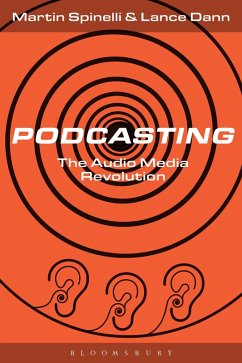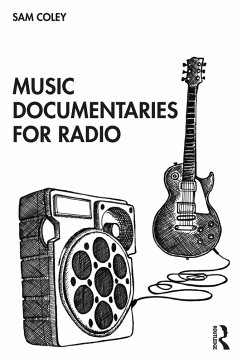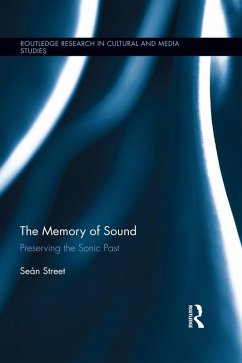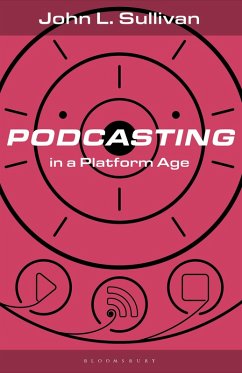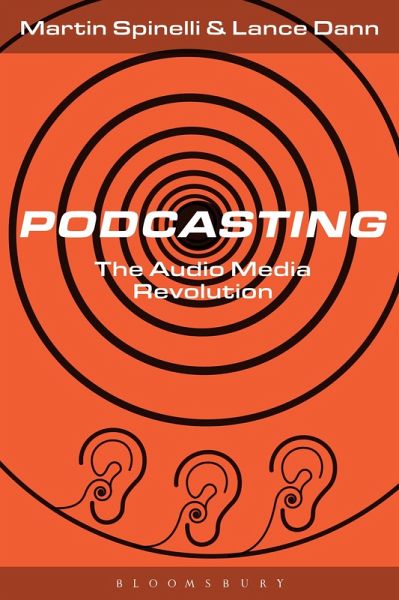
Podcasting (eBook, ePUB)
The Audio Media Revolution

PAYBACK Punkte
11 °P sammeln!
PROSE Award for Excellence in Media and Cultural Studies Finalist 2020 Born out of interviews with the producers of some of the most popular and culturally significant podcasts to date (Welcome to Night Vale, Radiolab, Serial, The Black Tapes, We're Alive, The Heart, The Truth, Lore, Love + Radio, My Dad Wrote a Porno, and others) as well as interviews with executives at some of the most important podcasting institutions and entities (the BBC, Radiotopia, Gimlet Media, Audible.com, Edison Research, Libsyn and others), Podcasting documents a moment of revolutionary change in audio media. The fa...
PROSE Award for Excellence in Media and Cultural Studies Finalist 2020 Born out of interviews with the producers of some of the most popular and culturally significant podcasts to date (Welcome to Night Vale, Radiolab, Serial, The Black Tapes, We're Alive, The Heart, The Truth, Lore, Love + Radio, My Dad Wrote a Porno, and others) as well as interviews with executives at some of the most important podcasting institutions and entities (the BBC, Radiotopia, Gimlet Media, Audible.com, Edison Research, Libsyn and others), Podcasting documents a moment of revolutionary change in audio media. The fall of 2014 saw a new iOS from Apple with the first built-in "Podcasts" app, the runaway success of Serial, and podcasting moving out of its geeky ghetto into the cultural mainstream. The creative and cultural dynamism of this moment, which reverberates to this day, is the focus of Podcasting. Using case studies, close analytical listening, quantitative and qualitative analysis, production analysis, as well as audience research, it suggests what podcasting has to contribute to a host of larger media-and-society debates in such fields as: fandom, social media and audience construction; new media and journalistic ethics; intimacy, empathy and media relationships; cultural commitments to narrative and storytelling; the future of new media drama; youth media and the charge of narcissism; and more. Beyond describing what is unique about podcasting among other audio media, this book offers an entry into the new and evolving field of podcasting studies.




